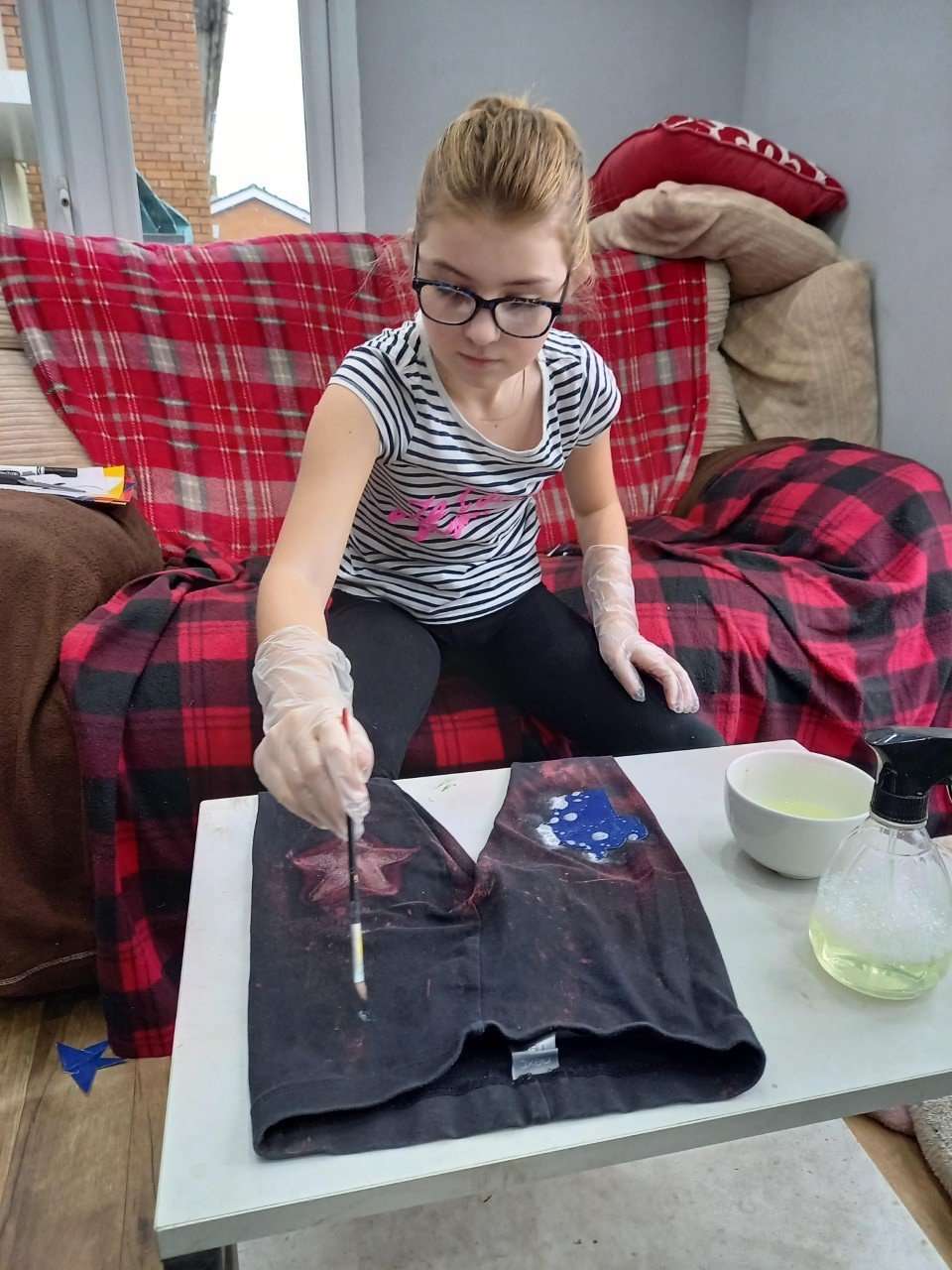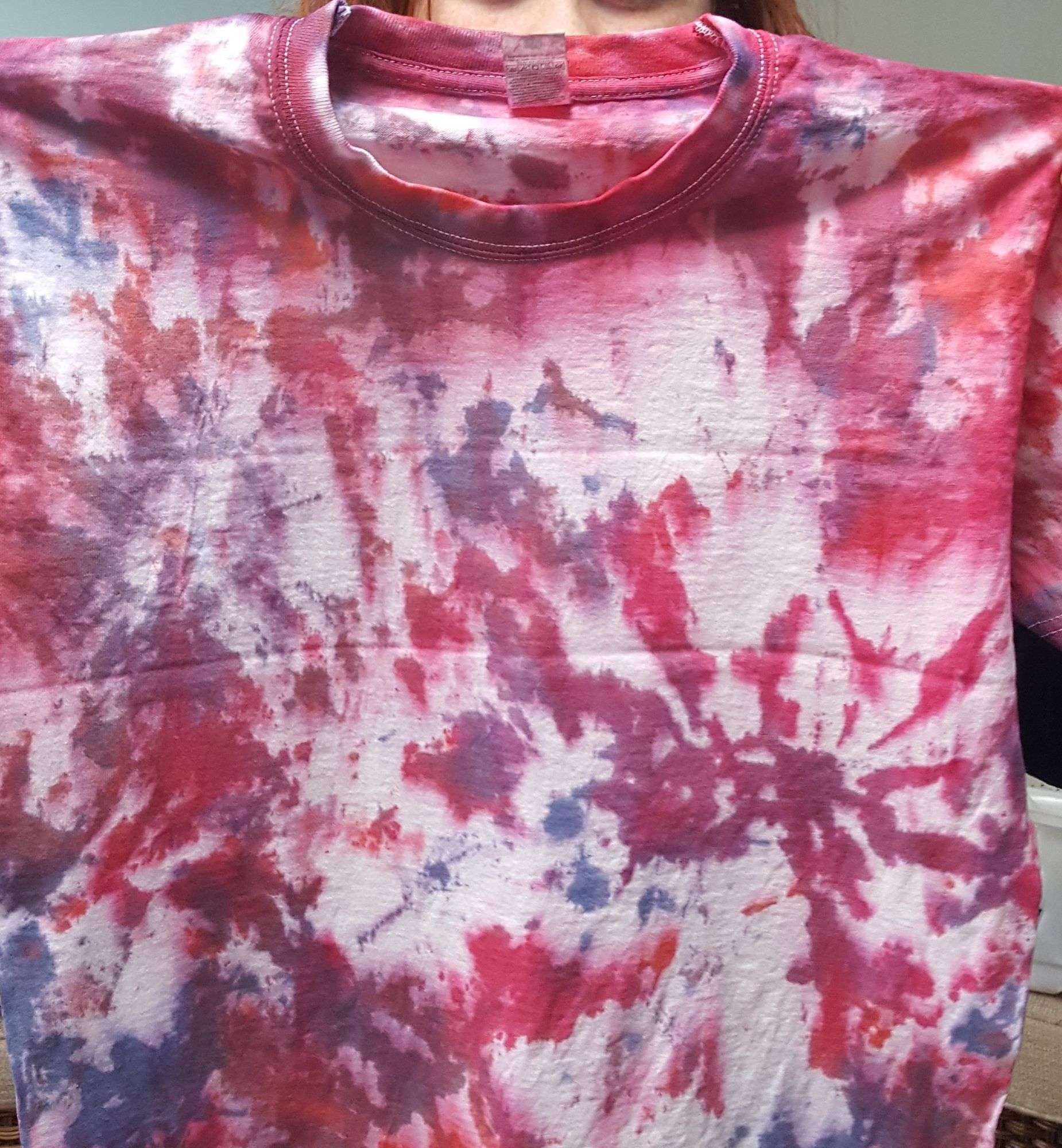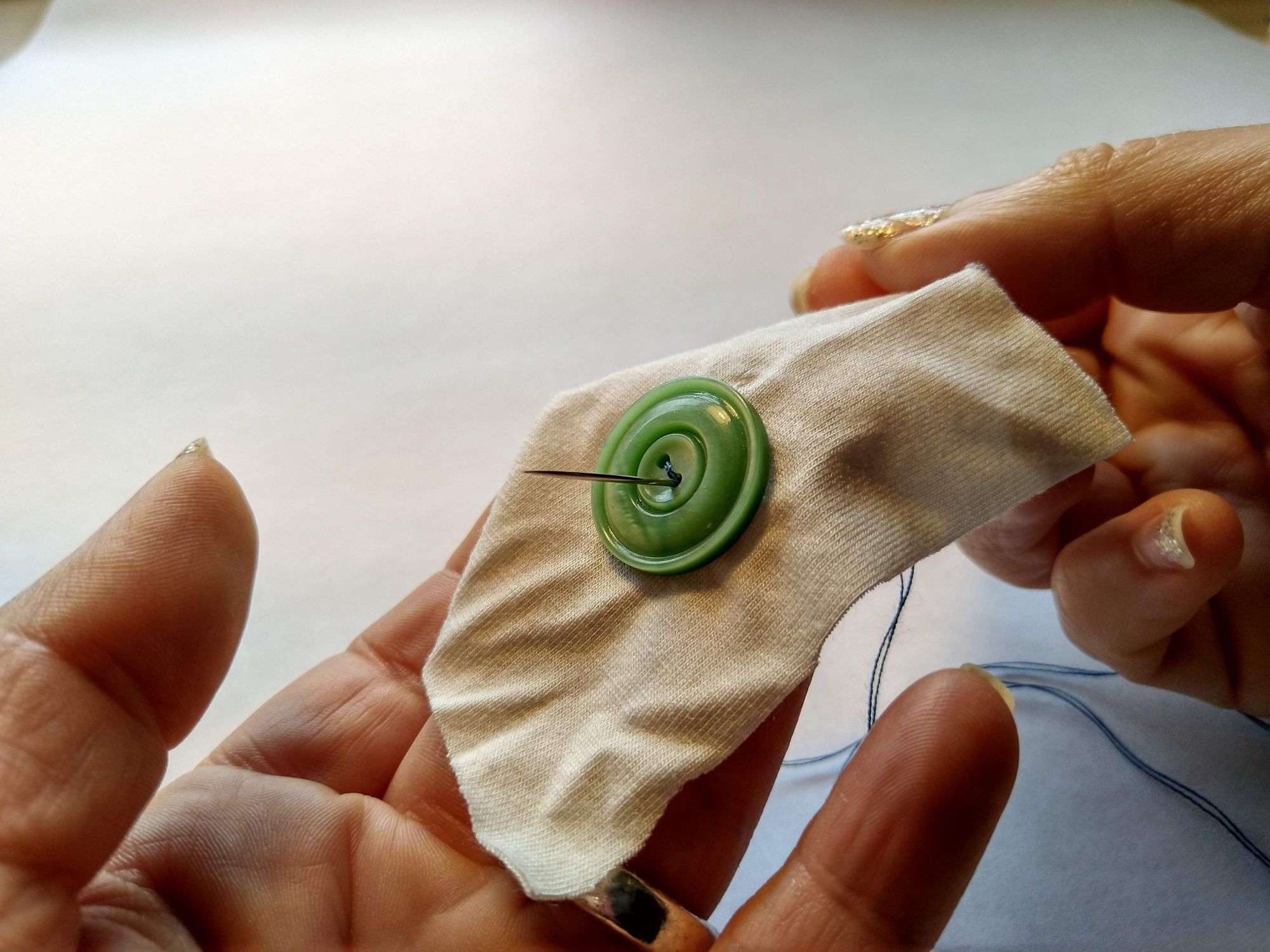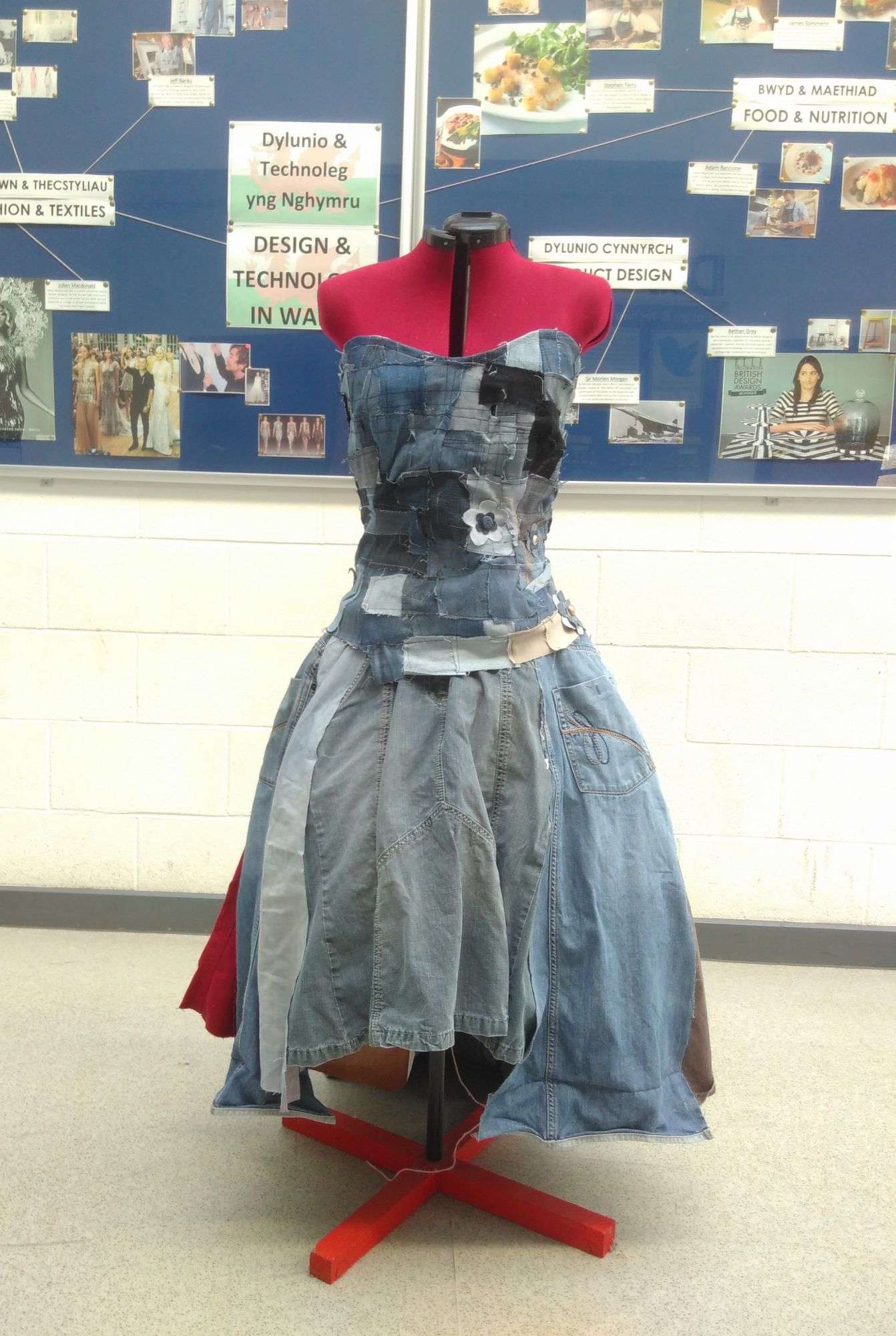Interview by Kath Jenkins
Continuing our series of interviews connecting with other organisations in Wales which share our core values of waste reduction, skill sharing and community cohesion, I was really excited about meeting Helen O’Sullivan, the founder of SustFash Wales. Lockdown had given me the opportunity of improving my rudimentary needlework skills and I was really interested in getting some tips from an expert in how to live a little bit more sustainably.
I first heard Helen speak at a Sustainable Wales webinar last year, discussing whether a zero waste lifestyle was really possible. Her energy and enthusiasm with inspirational ideas led me to wanting to find out more. As one of our key aims at RCW is to repair things rather than throw them away, I was keen to find out how SustFash Wales’ activities result in waste reduction:
“I’m really interested in trying to reduce textile waste at all levels of the supply chain. I know that the fashion industry creates a phenomenal amount of waste, but I’m interested in reaching consumers to give them some ideas about what they can do themselves. I do this in three different ways: through SustFash Wales, reaching consumers; teaching Design and Technology at secondary school, raising awareness and providing basic skills; and through the PhD that I’m just starting which will involve working with children in primary school.
 Pupil lockdown practical work decorating old clothes
Pupil lockdown practical work decorating old clothes
I started SushFash Wales in 2013 when I returned to Wales after studying and working in London. I realised that no platform existed where people could share what they were doing to make fashion more sustainable, so I started organising events which had evolved into SustFash Wales by 2017. I wanted to get the message to consumers that there are lots of different types of waste. Research has shown that of all the clothes discarded in the UK every year, 85% is thrown away and only 15% is recycled or sold second-hand. This means that 350,000 tonnes of clothes are disposed of in landfill in the UK every year. I want consumers to realise that clothes can be customised or repaired. I also wanted to share some skills to highlight how easily some of this can be achieved. I know that I’m lucky as my nan was a fantastic seamstress and she shared her passion for sewing with me and taught me how to sew from the age of 7. Not everyone is as lucky as I am, but some clothes can be saved from being thrown away if the owner could do something relatively simple like sewing on a button.
 School Children’s Tie Dye T’Shirt Lockdown Work
School Children’s Tie Dye T’Shirt Lockdown Work
In my current job of teaching in secondary school, my message is on how to reduce waste and to become a more conscious consumer. I currently teach Fashion & Textiles to Years 7, 8 and 9 (and also at GCSE) and equip my students with skills for life including how to thread a needle, tie a knot, change a button and sew on a patch. We make stuffed toys, which includes a practical example of how to do a slip stitch which my students learn is the basic stitch used to sew up a seam, so they can do simple repairs to their own clothes if they want to. They leave the class fully equipped with knowledge and a simple, effective sewing kit to use at home.
I’m really looking forward to working with one year group in a local primary school for 4 years as part of my PhD. Design and technology isn’t really taught at this level as it’s seen to be more of a specialist subject. Although children learn about recycling, they may not connect it to their lives. I love working with young children as they are often opinionated and passionate, so I can’t wait to start this project.”
Helen had already given me lots of ideas about how she inspires others to reduce waste in her teaching, but I was eager to find out even more about how Helen promotes skill sharing, another of our prime objectives at RCW. Our visitors are invited to sit with their volunteer repairers, including many of our talented sewers to watch and discuss the repair, enabling skills to be passed on:
“Last year I started some online tutorials which can be found on the SustFash Wales YouTube channel.
These are easy to follow with simple instructions on, for example, how to sew on a button, make a slip stitch and sew on a patch.
For 10 years I’ve also gone to festivals and have held hand sewing workshops for kids and adults. Last year I adapted to do this online at a virtual festival where we made dinosaur tails and toys from old socks which was great fun.”
 Sewing on a button
Sewing on a button
I also asked Helen how SustFash Wales promotes community cohesion which RCW’s pop up sessions aim to do by inspiring and connecting local residents from different backgrounds:
“It’s a difficult time at the moment as we’ve been unable to hold sustainable fashion events which we’ve been doing since 2008. We try to get as many people involved as possible. Our last fashion show was in 2018 and we held a competition for primary school children to design a t-shirt with a positive message. We were overwhelmed by the response. In the end 8 children got their t-shirts made up and modelled them on the catwalk. It was adorable.
 Primary School T-Shirt Competition
Primary School T-Shirt Competition
I also run an eco-fashion after school club for all ages. Some of my Year 7 students had no previous needlework skills, but by the end of the course they had created a corseted ballgown out of denim scraps and 8 pairs of jeans formed the fan of the skirt. It was amazing. We showed it at Cardiff fashion week, and it was also exhibited at the National Waterfront Museum’s waste reduction exhibition.
 Denim Scrap Dress
Denim Scrap Dress
I’ve worked and volunteered with many other groups including at festivals, different community groups of all ages and with disaffected young adults in Cardiff.”
This led me on to my final questions regarding the current restrictions which have meant that RCW has been unable to hold public events. Instead, we have been streaming virtual repairs and offering different types of repair services; collection and delivery, outdoor events and drop off and collection services. Although Helen had already told me about some of the changes brought about by the COVID-19 situation, I wondered whether there were any other effects:
“My workshops have now moved to online for the time being which has been effective. Teaching has been more of a challenge as discussing waste reduction and its social and environmental impacts can be all doom and gloom if a solution is not also offered, such as a practical way in how pupils can reduce their waste if they are inspired to. I am making videos for school, using a visualiser, which makes it quite easy to see what I’m doing. I’m also creating similar videos for SustFash which includes “how to” videos demonstrating how to, for example, dye old clothes to give them a new lease of life.”
So, if you’ve been inspired, as I certainly have been, and would like to brush up on some basic or more advanced needlework skills, why not take a look at SustFash Wales website.
Join us next time to find out more about another Welsh organisation which shares our core values.




